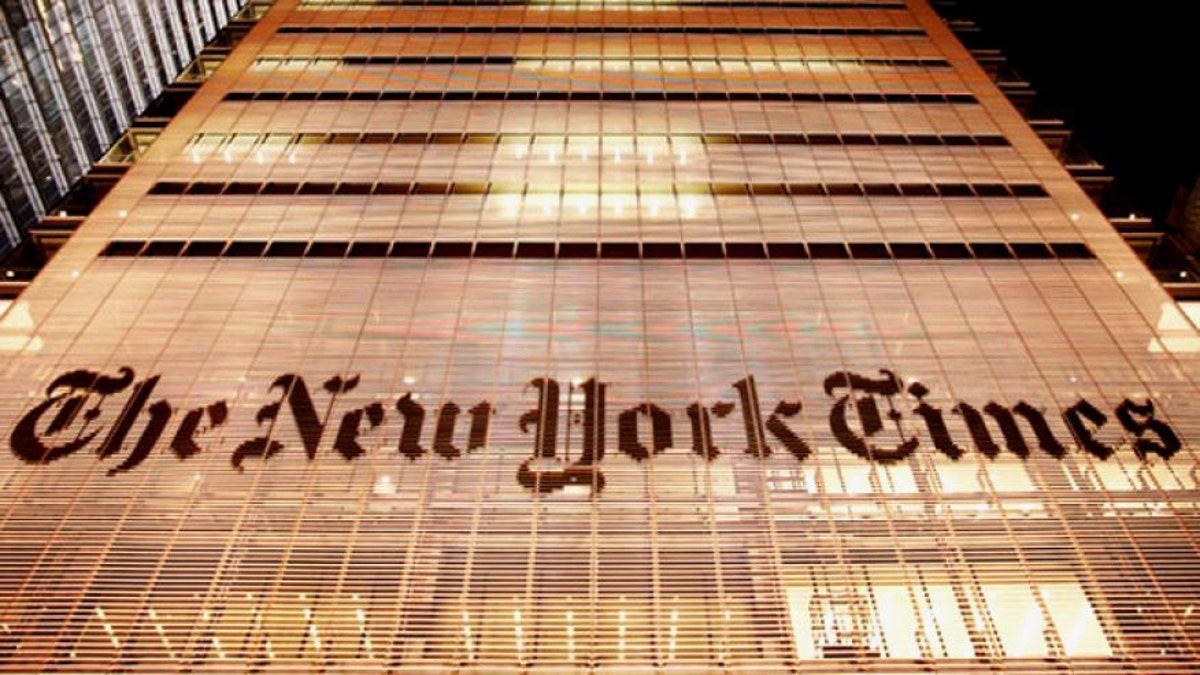
(AP)
New York Times Executive Editor Dean Baquet issued new social media guidelines to his newsroom on Friday and advised staffers to “read them closely, and take them to heart” so that the paper’s journalists are not perceived as biased.
“Many of our journalists are influential voices on Twitter, Facebook, Instagram and other platforms. The voices of our readers, listeners and viewers inform and improve our reporting,” Baquet wrote. “But we also need to make sure that we are engaging responsibly on social media, in line with the values of our newsroom.”
Baquet discussed Twitter at a forum at George Washington University Thursday and said his staff “should not be able to say anything on social media that they cannot say” in the Times, according to Politico.
The Times’ rival, The Washington Post, published a story back in Oct. 2016 headlined, “#Biased? Reporters on Twitter don’t hold back about Trump”. The article mentioned Times reporters throughout, noting that “reporters are supposed to keep their opinion out of the stories they write” but that policy doesn’t seem to apply to Twitter. The Post called out Times staffers Alex Burns for attacking Trump on a regular basis – and that was before he defeated Hillary Clinton on Election Day.
Media Research Center Vice President Dan Gainor thinks it’s too little, too late when it comes to the Times' reporters appearing anti-Trump on social media.
“Twitter has been around for 10 years and The New York Times is only now realizing that its staff say lots of stupid, left-wing things there?"
“Twitter has been around for 10 years and The New York Times is only now realizing that its staff say lots of stupid, left-wing things there? I know Baquet isn't active on Twitter, but he claims he is aware of the Times agenda problem. You'd never know it though,” Gainor told Fox News.
“His solution is a mere fig leaf so the Times can pretend to be a serious news organization. This is the same paper whose columnist Paul Krugman recently tweeted about a nonexistent cholera outbreak in Puerto Rico," he added.
"This is the same paper that tweeted about its climate change agenda in August, asking ‘What’s a greater threat to Guam? North Korea, or climate change?’ And it will be the same paper that continues to bash Trump across all platforms, no matter what this new rule claims.”
Perhaps Baquet’s decision to update the policy has to do with the Times’ White House correspondent Glenn Thrush, who has not tweeted since Sept. 19 but had a habit of criticizing Trump prior to going dormant. Thrush said he stopped tweeting because it was “too much of a distraction” but some of his past tweets would have probably violated the paper’s new guidelines.
“In social media posts, our journalists must not express partisan opinions, promote political views, endorse candidates, make offensive comments or do anything else that undercuts The Times’s journalistic reputation,” the Times listed as a key point in the new policy.
Thrush has a handful of tweets on his timeline that can be viewed as partisan opinions, and we only went back to the beginning of August in search of examples.





















